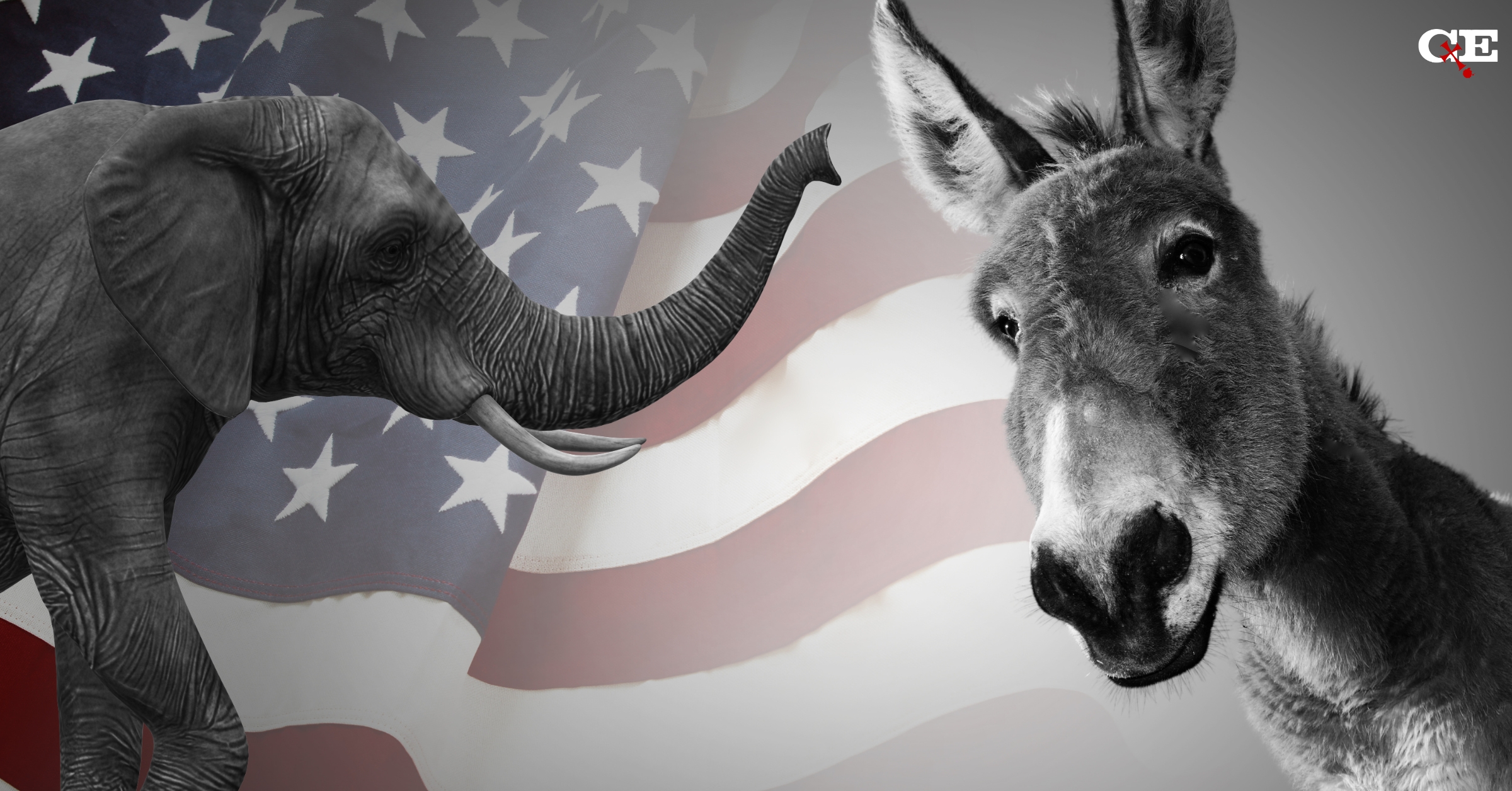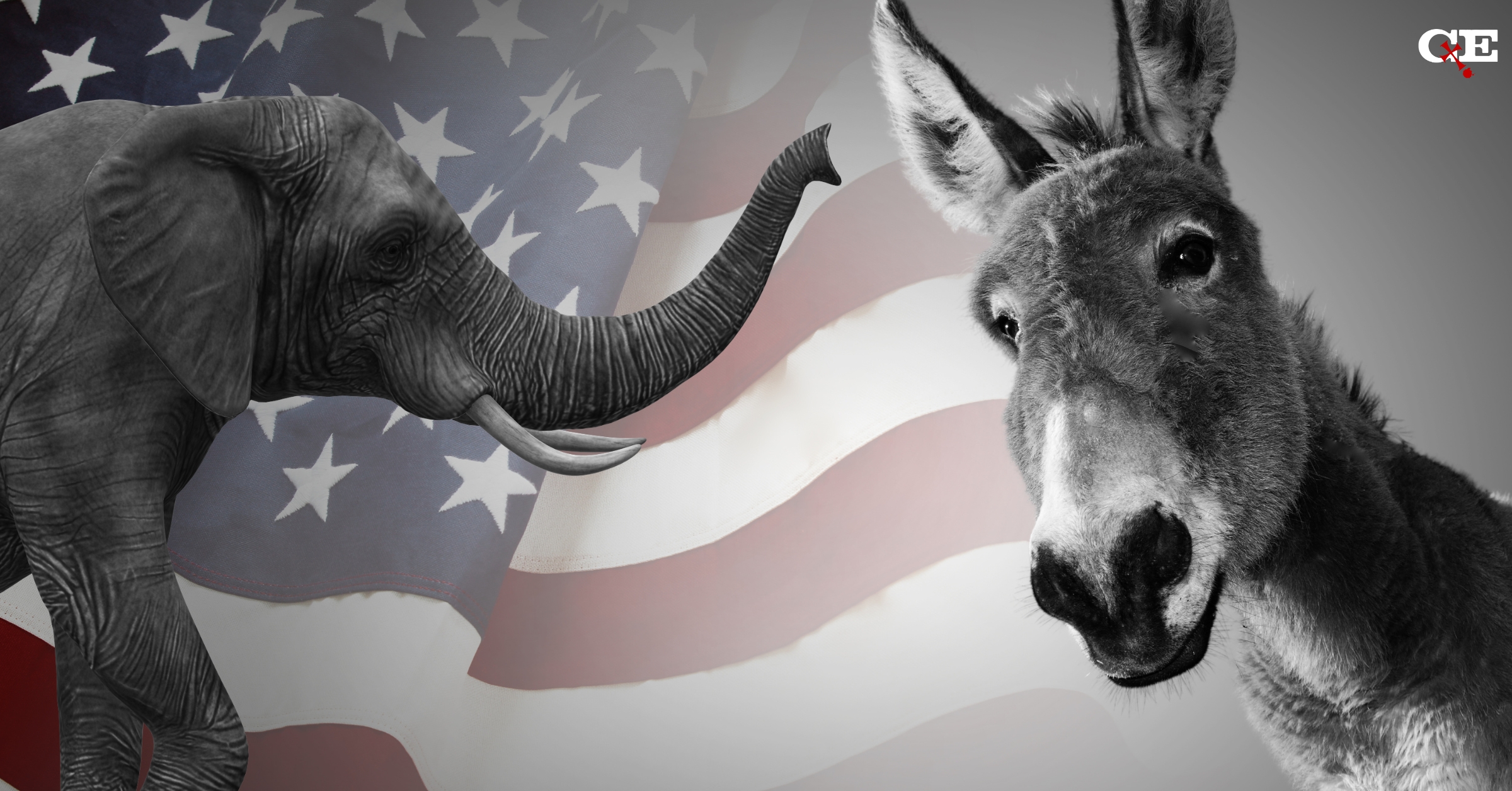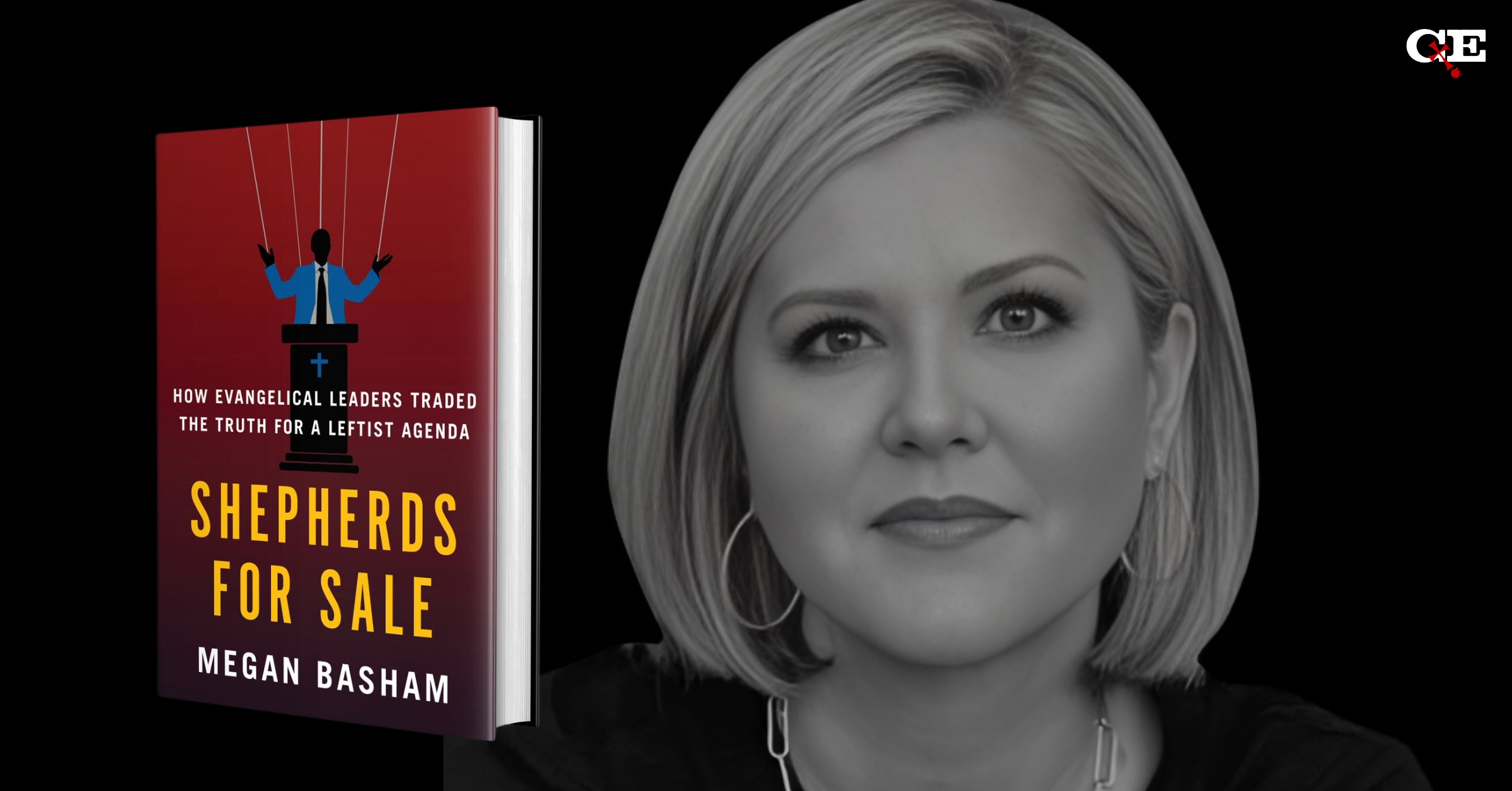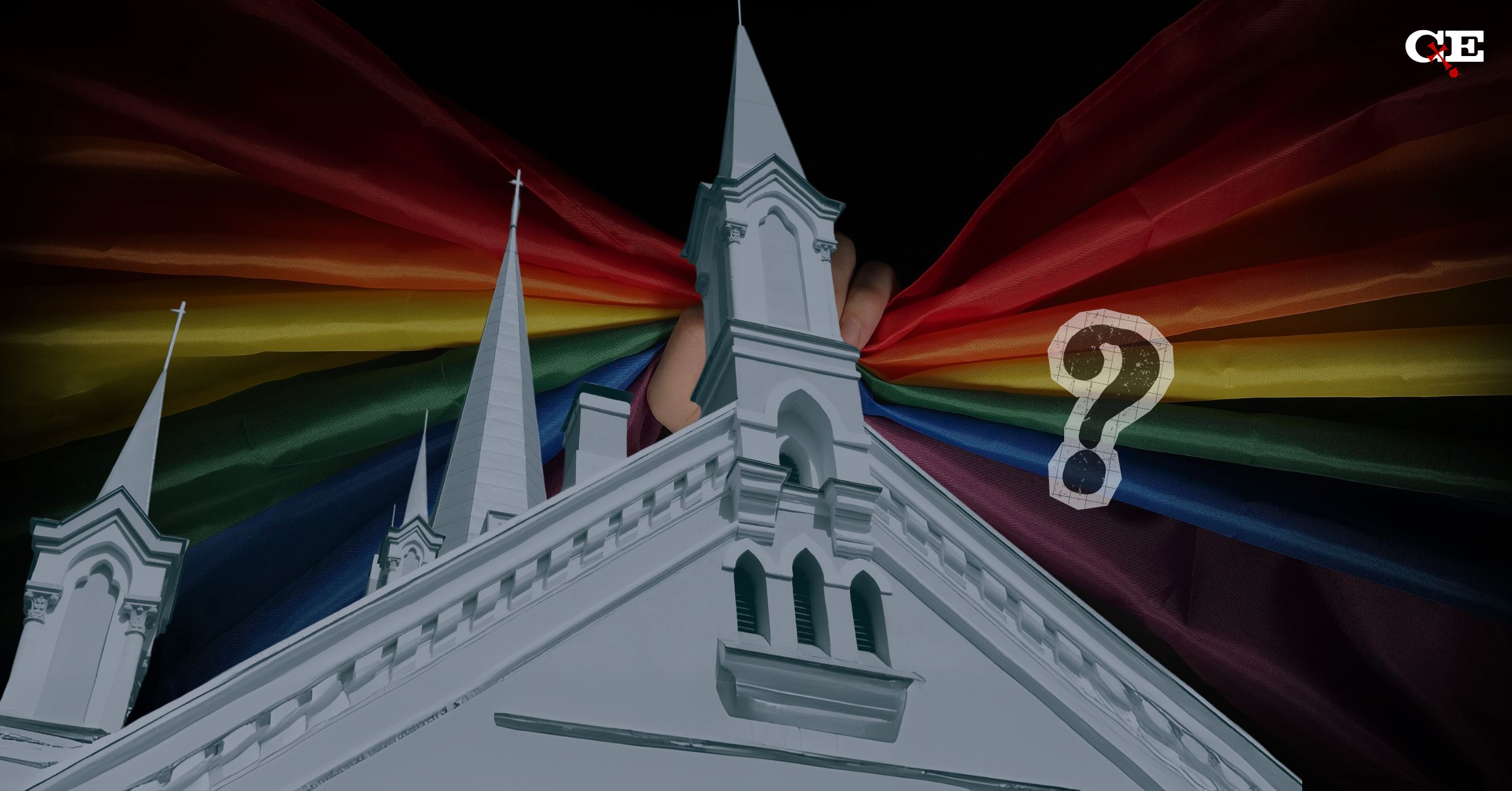I’ve been fascinated by Marxism since my parents first told me about the Cold War we were living in when I was almost 10-years-old (1983). I remember asking them why the Soviet Union had nuclear weapons aimed at us. After my parents reassured me that we had just as many nuclear missiles aimed back at them — ensuring that they will not use these weapons against us (peace through strength) — they explained it to me like I was 10-years-old (because I was). While not using these exact words, my parents basically told me that the Soviet Union was based upon a philosophy called Marxism which is logically incompatible with America’s theological and philosophical foundations. This sparked a desire to learn more about our fundamental disagreements.

I wanted to know about America’s philosophical foundations. I wanted to know more about Marxism. So, over the past four decades I have studied Marxism off and on as a hobby. While I make no claims to be a Marxist scholar, as a philosophically inclined analytic theologian — who has applied the tools of my trade to this hobby — I do think it’s fair to say that I know enough about Marxism to have an informed conversation on the matter. So, since my parents provided me with a nice introduction to Marxism four decades ago, allow me to pay it forward and provide an introduction here.
Marxism 101
In a nutshell, Marxism is a socio-political and economic ideology developed by Karl Marx (hence the name “Marxism”) and Friedrich Engels in the 19th century. As Marx wrote in the Communist Manifesto, his philosophy emphasizes the role of struggle between the oppressed and the oppressor in societal development. Marx advocated for a classless, stateless society where the means of production are owned collectively.
That might look good on paper, but Marxism has a rich history of utter failure, poverty, tyranny, death, and destruction. Indeed, if we are comparing death counts, Marxism makes Hitler’s Nazi Party seem tame. While Hitler’s Holocaust of evil murdered six million Jews, those putting Marx’s philosophy into action have killed well-over 100 million people! Yet, while we do not hear that we’ve got to keep trying Naziism again and again, Marxists demand that despite repeated failures, along with more and more death and destruction, we must keep trying to implement Marxism again, and again, and over again.
Insanity Is Doing the Same Thing Over and Over Again and Expecting Different Results
The preceding words are attributed to Albert Einstein, but whoever originally said it, these words ring true. Yet, Karl Marx’s philosophy — which promises a better tomorrow — always leads to the same outcome, with the “useful idiots” who helped to usher Marxists into power, now trying to escape their new “utopia.” (The term “useful idiots” is not a pejorative term, but a Marxist term for a naive or credulous person who can be manipulated or exploited to advance a cause or political agenda.)
Konstan Kisin was fortunate enough to escape Marxism and puts it this way:
Lenin promised a better tomorrow in Russia, before imposing tyranny, poverty, and terror.
Mao promised a better tomorrow in China, before imposing tyranny, poverty, and terror.
Castro promised a better tomorrow in Cuba, before imposing tyranny, poverty, and terror.
Chavez promised a better tomorrow in Venezuela, before imposing tyranny, poverty, and terror.
Surprisingly, many useful idiots living within the borders of America — while enjoying a protection of their unalienable God-given rights — seem to think that they should use their freedom to destroy their freedom by making progress toward a Marxist utopia. The historical death count alone should prevent any sane person from advancing the cause of Marxism today, yet key tenets of Marx’s philosophy are alive and well.
Marxism’s Key Tenets
Here’s a short list of key ingredients included in Marx’s philosophy:
1. Class Struggle: Marxism is basically a worldview that posits a necessary conflict that only Marxism can solve. Marx said that the history of class struggles were between the bourgeoisie (owners of the means of production) and the proletariat (working class). Today, the language typically used (and that most of us will recognize) is the struggle between the “oppressed” and the “oppressor.” The ultimate goal is for the proletariat (or “the oppressed”) to overthrow the bourgeoisie (“the oppressor”), leading to a classless society.
Marx utilized the oppressor/oppressed narrative in the 1840s when he co-authored the Communist Manifesto. Today, you will hear the exact same language used by those at the top of the Black Lives Matter organization. This makes sense since the leaders of the movement have proudly admitted that they are “trained Marxists.”
2. Abolition of Private Property: Marxists advocate for the abolition of private ownership of the means of production (factories, land, etc.) and propose that these should be owned collectively by the community or ruling government.
As the World Economic Forum (WEF) recently said, “You’ll own nothing and you’ll be happy.”
3. Collectivism and State Control: Marxism starts with Socialism and emphasizes the central role of the government in controlling and distributing resources until the state itself “withers away” and transforms into full-blown Communism.
4. Critique of Capitalism: Marxism views capitalism as an exploitative system where the bourgeoisie (or the oppressor) extracts surplus value from the labor of the proletariat (or the oppressed), leading to inequality and social injustice. Thus, the Marxist advances what they refer to as “social justice,” which seeks equity (equal outcomes) as opposed to equal rights and opportunity.
Kamala Harris points out the difference between equality (equal rights and opportunity) as opposed to equity — “all ending up in the same place” (equal outcomes) in this short video.
5. Revolutionary Change: Marxism advocates for a revolutionary overthrow of the capitalist system, rather than reforming it through gradual or democratic means. We have seen this throughout history. “Political power grows out of a barrel of a gun” are infamous words uttered by Chinese Marxist named Mao Zedong. This has happened multiple times in world history, but most of us are old enough to remember that Black Lives Matter led a summer full of “mostly peaceful” protests combined with extremely violent riots in 2020 (that made January 6th look like a guided tour of the Capitol building). We saw a snapshot of what trained Marxists are willing to do in order to destroy “the system” in hopes to “Build Back Better.”
Karl Marx died in 1883, but his ideas have evolved and advanced at the Frankfurt School in Germany which exists for the purpose of advancing Marxism. This provided the foundation for the idea known as Critical Theory, and what has been advanced recently as Critical Race Theory (CRT). It’s vital to recognize this “theory” has deep roots in Marxism.
*Click here to read a copy of a speech I gave to the Kearney Public Schools Board of Education in 2022 about the dangers of CRT.
America’s Philosophical Foundations
The key tenets of Marxism are in opposition to America’s theological foundations stated in the Declaration of Independence and enemies of the United States Constitution. That is to say, the foundational documents of the United States are based upon principles that are incompatible with Marxism:
1. Individual Equal Rights and Private Property: The Declaration of Independence emphasizes God-given equal and “unalienable rights” including “Life, Liberty, and the pursuit of Happiness,” which are closely tied to the protection of individual rights and private property (starting with the private property of your own body). The Constitution enshrines these rights through various amendments, particularly the Bill of Rights. Marxism, in contrast, seeks to abolish private property and emphasizes collective rights and property over individual rights and property.
2. Limited Government: The U.S. Constitution establishes a system of limited government, with checks and balances designed to prevent any one branch from gaining too much power. When the government is smaller, We the People have more freedom. Marxism, on the other hand, advocates for a powerful state — ultimately a dictator — to control resources and enforce equity (equal outcomes) upon all people, regardless of their personal choices.
3. Democratic Processes: The United States of America is a Constitutional Republic and the U.S. Constitution is based on democratic principles where change is achieved through We the People in an electoral processes and the rule of law. As noted above, however, Marxism often advocates for revolutionary change, which can involve the use of horrible violence and the overthrow of existing governmental structures.
This is one reason why the Second Amendment (2A) of the U.S. Constitution is so important. America’s Founders realized that the human right of self-defense — and the defense of loved ones — serves as an insurance of all of our other rights and is “necessary to the security of a free state.” This makes it clear that the 2A is not about “hunting rights,” it’s about security and the ability to oppose enemies of the Constitution; foreign or domestic (this might explain why progressives, who are willing to use violence to overthrow the freedoms of American citizens, often seem frustrated by the 2A).
4. Capitalism: The American system is built on a capitalist economic model, which Marxism fundamentally opposes. The protection of free markets and private enterprise is central to the U.S. economy, whereas Marxism seeks to dismantle capitalism entirely.
These fundamental differences lead to an inherent opposition between Marxist ideology and the principles enshrined in America’s theological and philosophical foundational documents. These two views are logically incompatible. The American system prioritizes individual human freedom (my favorite topic), private ownership of property, and a government that serves and protects objective and unalienable human rights, whereas Marxism seeks to replace these structures with a collectivist system focused on equity and the forced communal ownership (ultimately through the barrel of a gun) of all resources and everything else.
I believe that America’s philosophical foundations are objectively true (i.e., they correspond to reality). Thus, in order to avoid painful collisions with reality, we ought to strive to correspond to reality. In a nutshell, I affirm Jefferson’s words in the Declaration of Independence:
“We hold these Truths to be self-evident, that all men are created equal, that they are endowed by their Creator with certain unalienable Rights…”
Accordingly, objectively good governments will not violate a human’s God-given rights. Indeed, an objectively good government will use its power to protect and fight for the God-given rights of humanity.
Since I possess knowledge that Christianity is true (given a cumulative case of evidence), I also know that Jefferson was right. Humanity was created on purpose and for specific purposes. This places us in an epistemic position to know exactly what our God-given rights are. This is also why it’s vital to study the entirety of God’s inspired Word (read your Bible)! Ultimately, Bible-believing Christians know that humans have God-given rights that ought not be violated by anyone – including governments.
In addition to the four philosophical principles of American philosophy, listed above, House Speaker Mike Johnson provides seven key essentials (some overlap with the above list) that American Conservatives — those seeking to conserve America’s philosophical and theological foundations — uphold:
- Individual Freedom
- Limited Government
- The Rule of Law
- Peace through Strength
- Fiscal Responsibility
- Free Markets
- Human Dignity
Progressives, as opposed to conservatives, have different goals. Whenever one refers to themselves as a “progressive,” I always ask them to clarify and be specific about what they are “progressing away from” and what they are progressing toward. I’ve had these conversations on many college campuses around the country and it seems that those who refer to themselves as “progressive” tend to make progress away from America’s philosophical foundations and often find themselves on a journey toward what they have been promised: a Marxist utopia.
This utopia can only exist if America’s foundation can be destroyed. Or in the words of Kamala Harris:
“To see what can be, unburdened by what has been.”
Make no mistake, Marxists have a religious devotion to being “unburdened by what has been” (America’s philosophical foundations). Despite horrendous failures over and over again, a Marxist utopia is what they believe “can be,” if they just try it one more time.
A Theological View of Marxism
Marxism is not merely a “shallow philosophy” (Colossians 2:8). As a theologian, I believe it is fair to refer to Marxism as a religion or a religious substitute. Of course, Marx did say that “religion is the opium of the people” so, although Marx himself would probably not refer to Marxism as a “religion,” it does share striking similarities with religion. Indeed, it seems to be an anti-Christ religion.
Just as Buddhism is often referred to as an “atheistic religion,” Marxism also seems to be worthy of that label. This is because it steps into the theological lane and attempts to provide answers to the problem of evil, sin, atonement, and forgiveness.
I have published two books and an academic journal article destroying particular arguments raised against the knowledge of God (2 Corinthians 10:5). Namely, all the problems of evil. I highly recommend reading the chapter I contributed to the book, Faith Examined (Wipf and Stock, 2023) where I show that if Christianity is true, combined with God’s necessary omniscience, then all the so-called “problems of evil” melt away. But, as philosopher Owen Anderson notes in his article, “Mere Marxism,” the Marxist seeks to take a non-theological approach to addressing why evil exists in the world. The problem is that some people have more stuff than other people. The Marxist’s answer is that the places where there is not as much suffering have exploited the places that have more suffering. Dr. Anderson writes:
In this story, those places were once Edenic. The people lived in harmony with each other and with nature until European sails were seen on the horizon, and all hell broke loose.
Of course, anyone with minimal knowledge of history knows this is historical revisionism (see, How Christianity Changed the World by Alvin J. Schmidt). As Anderson notes, before these lands were “colonized” by Europeans they were . . .
“filled with idolatry, sexual immorality, warfare, cannibalism, rape, self-mutilation, torture, and human sacrifice. But if you are taught the Mere Marxist narrative from K-12 and then in college, it is all you know.”
So there is a “problem of sin” in Marxism, and some are born sinners and some are born sinned against. But don’t worry, just as Jesus provides good news so that you can be set free from sin, the Marxist religion also provides atonement for your sins (more theology) if you happened to be born into the class of “oppressor.” Of course, this atonement is not through the life, death, and resurrection of Jesus, but rather, Marxism is a religion of works. If you were born into the class of the sinful oppressor, you can be saved and make the world a better place by giving lots of your money and time to progressive causes — along with much virtue signaling.
Anderson notes that
“Marxism should rightly be considered as a cult that borrows from Christian beliefs. It teaches about a perfect time, the introduction of sin (private property and greed), and the path through atonement and redemption. It is a religion of works. There is no grace or mercy. You can only be redeemed by doing your fair share.”
Now that we’ve shown Marxism to meet the requirements for being a religion, I’m sure the ACLU will be consistent and demand the separation of Church and State.
So, not only is Marxism the enemy of America’s Philosophical Foundations, it’s also opposed to The Law of Christ and the gospel message. Marx seemed to realize this inherent contradiction between these two worldviews when he decried that “religion was the opium of the people.” Thus, religion — especially Christianity — opposed the goals of Marxism. After all, if the ultimate goal of Marxism is equity (equal outcomes despite personal choices) it opposes the teachings of Jesus and the Law of Christ.
This is why, in order to transform America into a Marxist utopia, one of the first steps was to advance arguments raised against the knowledge of God. This is also why those advancing Marxist ideals have spent so much time focused on the growing number of theologians and philosophers who “destroy every argument raised against the knowledge of God” (2 Corinthians 10:5) and provide a cumulative case of arguments and evidence supporting the existence of God and the truth of the historical resurrection.
When Christianity thrives, Marxism dies.
Conclusion
This article briefly surveyed some key principles of Marxism and compared and contrasted them with key principles of America’s philosophical and theological foundations. We have seen that these two worldviews are logically incompatible and thus, natural enemies. Indeed, when one takes the oath to defend the U.S. Constitution . . .
I, [name], do solemnly swear (or affirm) that I will support and defend the Constitution of the United States against all enemies, foreign and domestic; that I will bear true faith and allegiance to the same; that I take this obligation freely, without any mental reservation or purpose of evasion; and that I will well and faithfully discharge the duties of the office on which I am about to enter. So help me God.
. . . one promises to defend it against all enemies foreign or domestic. Marxism is at the top of the list of these enemies.
Although the evil of Marxism presents itself in physical form against your neighbors, loved ones, and the least of these (Mark 12:30-31; Matthew 25:31-46), while promising to help them, it comes to destroy them. We must remember where this evil comes from. The Apostle Paul reminds us in Ephesians 6:
12 For our battle is not against flesh and blood, but against the rulers, against the authorities, against the world powers of this darkness, against the spiritual forces of evil in the heavens. 13 This is why you must take up the full armor of God, so that you may be able to resist in the evil day, and having prepared everything, to take your stand.
Of course, these spiritual forces of evil in which Paul speaks have infected the minds of many humans. We must seek to reason together (Isaiah 1:18) and speak the truth in love (Ephesians 4:15) as we strive to free their minds (which is what FreeThinking Ministries is all about). We must always speak the truth, but we should begin with gentleness and kindness. If those we love refuse to listen — and as this evil becomes a clear and present danger to them and others — then Jesus and Paul give us examples of how the most loving thing to do is to stop worrying about being nice or coming across in humility. At that point, speaking the hard truth with cold facts is often the most loving thing a person can do for those refusing to see this danger.
Stay awake!
8 Be sober-minded; be watchful. Your adversary the devil prowls around like a roaring lion, seeking someone to devour. 9 Resist him, firm in your faith, knowing that the same kinds of suffering are being experienced by your brotherhood throughout the world (1 Peter 5:8-9).
Bottom line: We must call out the evils of this “shallow philosophy” (some have referred to it as the “woke mind virus”) which has taken so many captive (Colossians 2:8). Your neighbors, your loved ones, and the least of these depend on your voice. With this in mind, do not be silent in the face of evil! Be loud for the sake of love.
Much more can be said on this topic. Don’t worry, although this article was written as an introduction to the topic, FreeThinking Ministries has many articles and videos about the evils of Marxism (including several from Phil Bair, the author of Marx Attacks). More are forthcoming. Stay tuned.
Stay reasonable (Isaiah 1:18) and live in freedom (Galatians 5:13).
Recommended Resources:
Correct not Politically Correct: About Same-Sex Marriage and Transgenderism by Frank Turek (Book, MP4, )
Legislating Morality: Is it Wise? Is it Legal? Is it Possible? by Frank Turek (Book, DVD, Mp3, Mp4, PowerPoint download, PowerPoint CD)
You Can’t NOT Legislate Morality mp3 by Frank Turek
Reflecting Jesus into a Dark World by Dr. Frank Turek – DVD Complete Series, Video mp4 DOWNLOAD Complete Series, and mp3 audio DOWNLOAD Complete Series
Tim Stratton (The FreeThinking Theist) Tim pursued his undergraduate studies at the University of Nebraska-Kearney (B.A. 1997) and after working in full-time ministry for several years went on to attain his graduate degree from Biola University (M.A. 2014). Tim was recently accepted at North West University to pursue his Ph.D. in systematic theology with a focus on metaphysics.
Original Blog Posted Here: https://bit.ly/47wepLU















